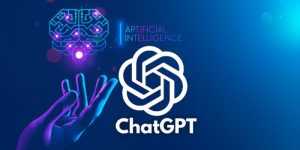Artificial Intelligence (AI) is a rapidly growing field of technology that has the potential to transform the world as we know it. AI refers to the development of computer systems that can perform tasks that typically require human intelligence, such as visual perception, speech recognition, decision-making, and language translation. AI has already made significant strides in these areas and has the potential to revolutionize many industries, including healthcare, transportation, finance, and education.
One of the main advantages of AI is its ability to perform repetitive and monotonous tasks more efficiently and accurately than humans. For example, in the healthcare industry, AI can be used to analyze vast amounts of medical data and help doctors make more informed decisions about treatment plans. In the financial sector, AI can be used to analyze financial data and provide more accurate predictions about stock prices and market trends.
Another advantage of AI is that it can help automate tasks, freeing up time for humans to focus on more creative and strategic tasks. For example, in the transportation industry, AI can be used to automate the driving of vehicles, reducing the risk of accidents caused by human error. In the education sector, AI can be used to personalize learning experiences for students, providing them with tailored content that meets their individual needs.
However, AI also has some disadvantages that must be considered. One of the main concerns is the potential loss of jobs as AI systems become more advanced and capable of performing tasks that were previously performed by humans. This could lead to high levels of unemployment, which could have a significant impact on the economy.
Another concern is the potential for AI systems to make mistakes. AI systems are only as good as the data they are trained on, and they may make decisions based on incomplete or biased data, leading to unintended consequences. This could have serious implications in industries such as healthcare, where a mistake made by an AI system could have serious consequences for patients.
Moreover, AI systems can also raise ethical and moral concerns, such as the use of AI in military applications or the use of AI to make decisions that affect people’s lives. The development of AI raises questions about the role of humans in decision-making and the responsibility of AI systems and their creators for their actions.
In conclusion, Artificial Intelligence is a rapidly growing field that has the potential to transform many industries and improve our lives in many ways. However, it is important to consider the potential disadvantages of AI, including job loss, mistakes, and ethical concerns, and ensure that the development and deployment of AI systems are guided by ethical and responsible principles.
One of the best service providers of softwares are known as; www.aisoftwaredevelopers.co.uk, do visit their site to get your customised machine learning, AI softwares for your businesses to attain a better ROI.




